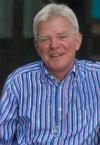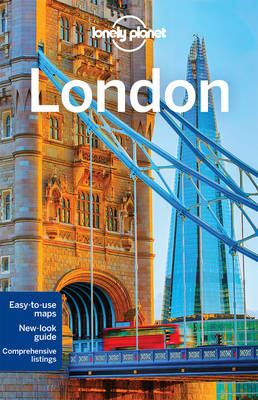I live on the best street in the world. Now that I’m back on it, I know how true that statement is. OK, I can’t exactly prove it. But if that substance-sozzled charlatan Salvador Dalí were to move onto Chisenhale Road E3 tomorrow, he would immediately proclaim it the `centre of the universe,’ knocking that silly train station in Perpignan off its plinth forever. And that’s a fact.
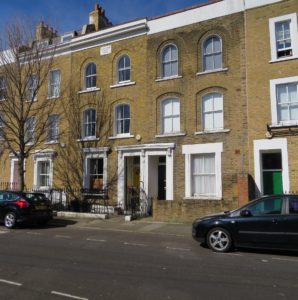
Look around you – we’ve got everything here. Rowan trees with squishy red berries and speed bumps, NHS and BLM posters in the windows and even a Boris Bike docking station. And from time to time there’s an abandoned shopping trolley too – always the sign of a lived-in neighbourhood. Oh, and the people? It’s a veritable rainbow: black and yellow, brown and pink, gay, straight, middle of the road.
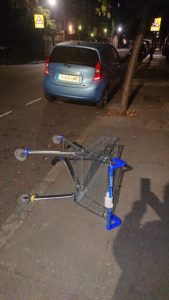
But now it seems we have thieves, too. Just last weekend a visiting friend’s very expensive German bicycle – the kind with those ultra-thin wheels – was nicked while Kryptonite-locked to the wrought-iron railings in front of our house. Snip, snip and you’re on (what’s now) your bike. I haven’t been that humiliated since the days when Anne Frank embarrassed me.
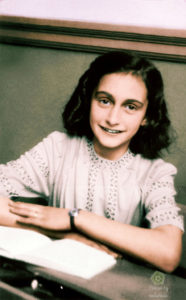
Let me explain … I read Anne’s diary when I was young. Very young. Frightened but always trying not to show it, I knew there was a war on even before I knew what a war was. I needed a kindred spirit if not a hero. I read the diary again and again and grew (what we would now call) obsessed. It became my holy book and mouthpiece; Anne’s words (and views and memories) became mine. I was a teenage kleptomnesiac. And, by the time I got to the Secret Annexe in Amsterdam a few years later, I could have drawn you the floor plan, described what Mrs. Van Daan kept on her chest of drawers, told you Margot’s favourite dish and painted the view of the chestnut tree from the attic where Peter worked. I was Kitty.
Foremost, I believed what Anne had written from the heart and soul and took possession of those words and thoughts: `I simply can’t build up my hopes on a foundation consisting of confusion, misery, and death. I see the world gradually being turned into a wilderness, I hear the ever-approaching thunder, which will destroy us too, I can feel the sufferings of millions and yet, if I look up into the heavens, I think that it will all come right, that this cruelty too will end, and that peace and tranquillity will return again … In spite of everything, I still believe that people are really good at heart.’
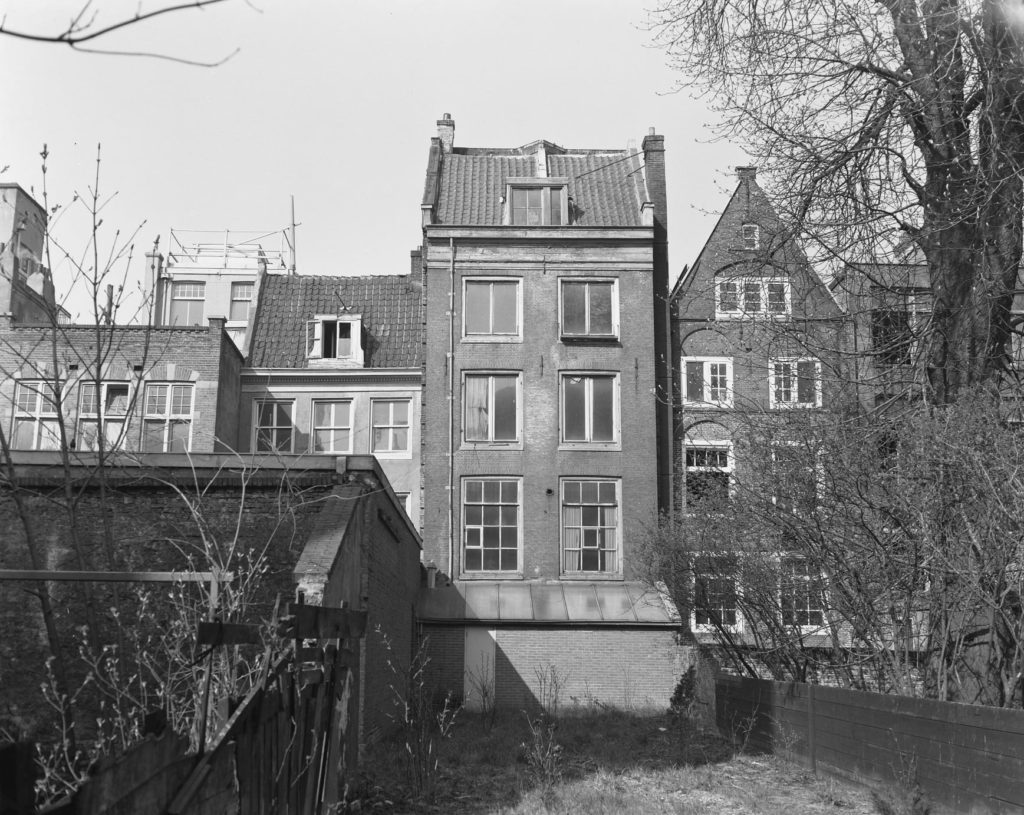
Alas, this did not go down well in the cynical years in which I came of age. 1984 was not just knocking at the door but had kicked it in and had made itself at home. The breakdown of a mini `society’ like the one formed by the boys in the the Lord of the Flies was as true (and inevitable) as death and taxes. And listen to your Uncle Mao: `Political power grows out of the barrel of a gun.’
Anne, the Franks, the whole bunch of them had taken it on the chin, said the naysayers, and we were now meant to fight back. People were not good; they were intrinsically evil. Surely they knew – I could see – all that? Was I such a fool? But hindsight is a game without rules when played in the future; it’s always 20/20 there.
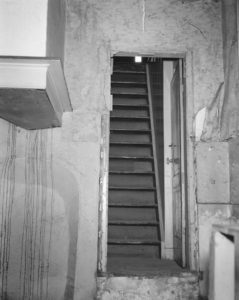
And so, I soldiered on quietly carried on, believing – just maybe – that despite the beheadings and mass starvation, the waves of immigrants on the not-so-distant shores and assassination after assassination of the good and never the bad guys there would be light or maybe even something better at the end of the tunnel.
I stopped talking about Anne – the bullies drowned me out – but that didn’t keep me from thinking about her. We’d meet in our own Secret Annexe, a kind of self-imposed closet that kept us safe and silent.
And then, not too very long ago, I picked up a book with the intriguing title Humankind, which at first, hearing Randy Newman’s song `Human Kindness Is Overflowing,’ I assumed was an Idiot’s Guide to Cynicism in Our Time. Uh-uh. It’s by a young Dutch historian – I’d call him a philosopher – who argues again and again with great credulity that man’s propensity is not to do wrong but do right, whose aim is not to harm but to help, whose aim is not to destroy but to nurture. The true story of the Lord of the Flies in the Pacific somewhere near Tonga was ultimately quite different from that that descried by William Golding. People did, in fact, respond to Kitty Genovese’s cries for help as she was brutally stabbed on that cold and dark March morning in Brooklyn in 1964. And interview after interview by the Allies after the war show that the majority of German soldiers had no strong belief in extreme ideology but fought for comradeship. `Nazism begins 10 miles behind the front line,’ they said. A veritable `band of brothers’ on St Crispin’s Day auf Deutsch …
Anne and I are back together, this time out in the open. And with All This hanging around and refusing to leave like some unwanted guest after midnight, the girl is as welcome as the sun.
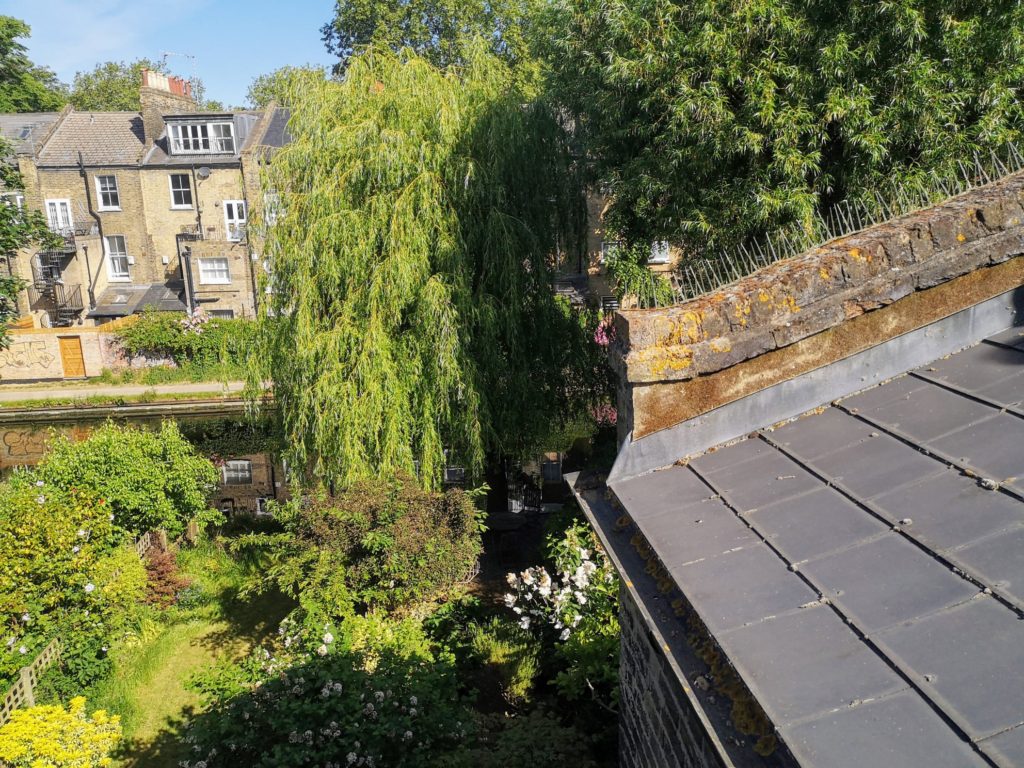
Nearly every morning I go to the attic … Ooops, that needs quotation marks – it’s Anne talking not Kitty … `Nearly every morning I go to the attic to blow the stuffy air out of my lungs … From my favourite spot on the floor I look up at the blue sky and the bare chestnut tree, on whose branches little raindrops shine, appearing like silver, and at the seagulls and other birds as they glide on the wind. As long as this exists … and I may live to see it, this sunshine, the cloudless skies, while this lasts, I cannot be unhappy.’
Nor should you, dear readers. Not as long as this exists.
